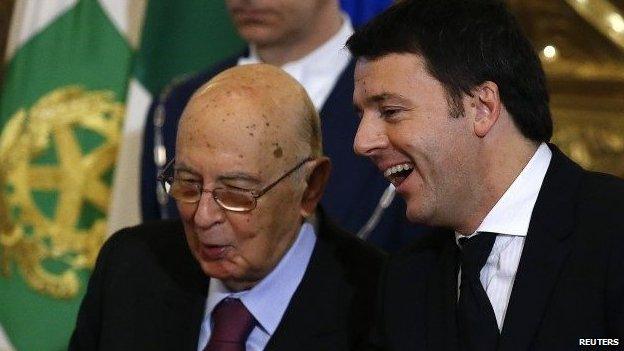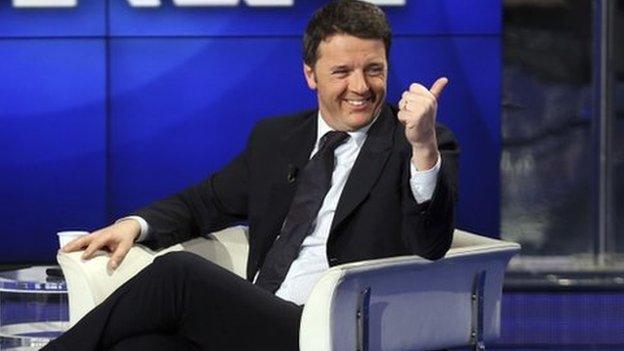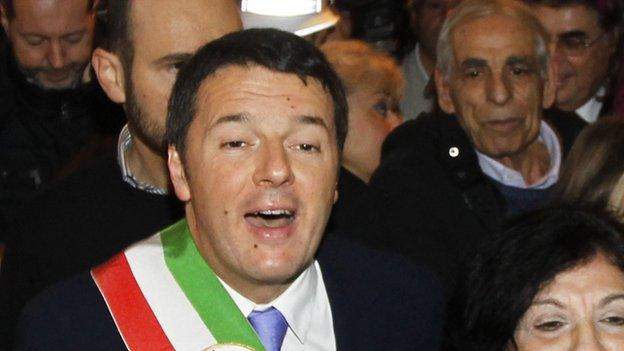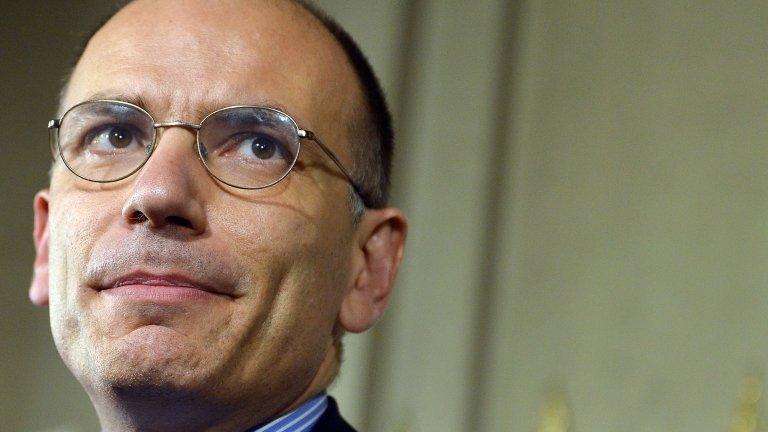Matteo Renzi sworn in as Italy's new PM in Rome ceremony
- Published

Mr Renzi (R) has no previous government experience
A new Italian government led by centre-left politician Matteo Renzi has been sworn in.
Mr Renzi, 39, will be the youngest prime minister in the country's history, and one of its least experienced.
He rose to prominence as the mayor of Florence, but has never been elected to parliament or served in a national government.
He has chosen a comparatively young cabinet team, about half of them women.
The BBC's Alan Johnston in Rome says Mr Renzi will be judged on whether he can reinvigorate the eurozone's third largest economy. Unemployment in Italy currently stands at a nearly 13% - and above 40% among the young.
Mr Renzi has promised to overhaul the jobs market and the tax and education systems within four months, but our correspondent adds that he leads an awkward coalition that will not make his task easy.
The new prime minister has named the chief economist at the Paris-based Organisation for Economic Co-operation and Development, Pier Carlo Padoan, as his finance minister.
Angelino Alfano, who heads the New Centre Right party, one of the Democratic Party's coalition partners, remains as interior minister.
The government will have to win a vote of confidence in parliament, expected on Monday, before it starts work officially.
On Friday, Mr Renzi formally accepted the mandate to lead a new government and named his cabinet.
Announcing his team, he said: "It's a government that will start to work from tomorrow morning."
The swearing-in took place on Saturday in the ornate presidential palace in Rome as the new prime minister and his cabinet - with the exception of Mr Padoan, who had not returned from Australia in time for the ceremony - took the oath of office from President Giorgio Napolitano.
Mr Renzi ousted prime minister and party colleague Enrico Letta, who had led Italy for just 10 months, in a vote at a party meeting on 13 February.
Mr Renzi argued that a change of government was needed to end "uncertainty". He had accused Mr Letta of a lack of action on improving the economic situation, with unemployment at its highest level in 40 years and the economy shrinking by 9% in seven years.
Mr Letta was also accused of failing to implement promised reforms of what is seen as an often corrupt and wasteful bureaucracy.
- Published16 February 2014
- Published1 June 2015

- Published14 February 2014

- Published13 February 2014
